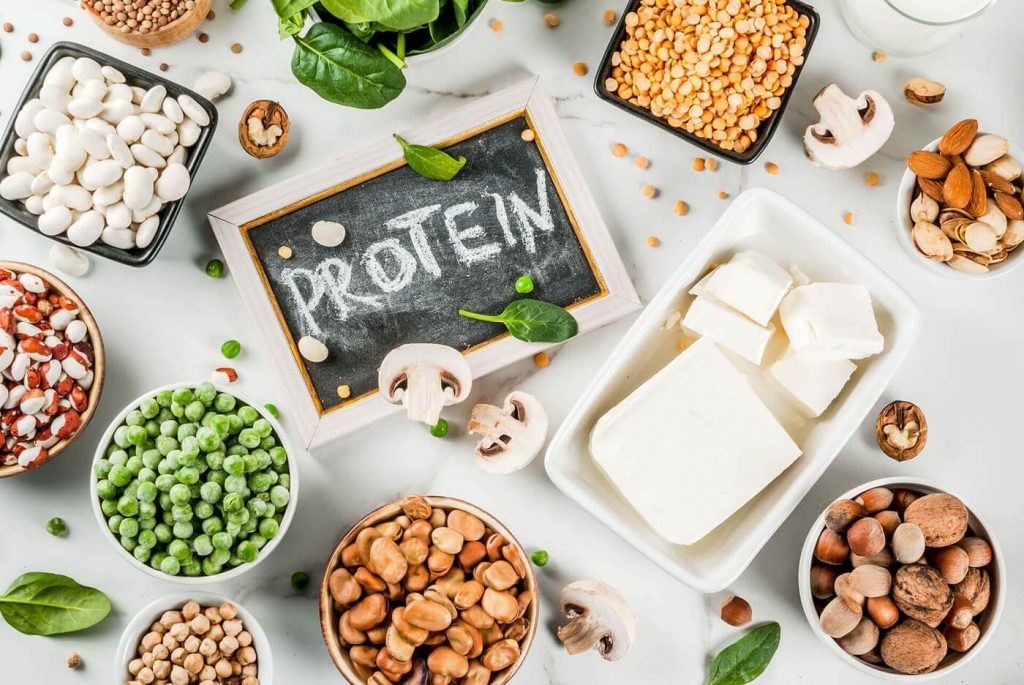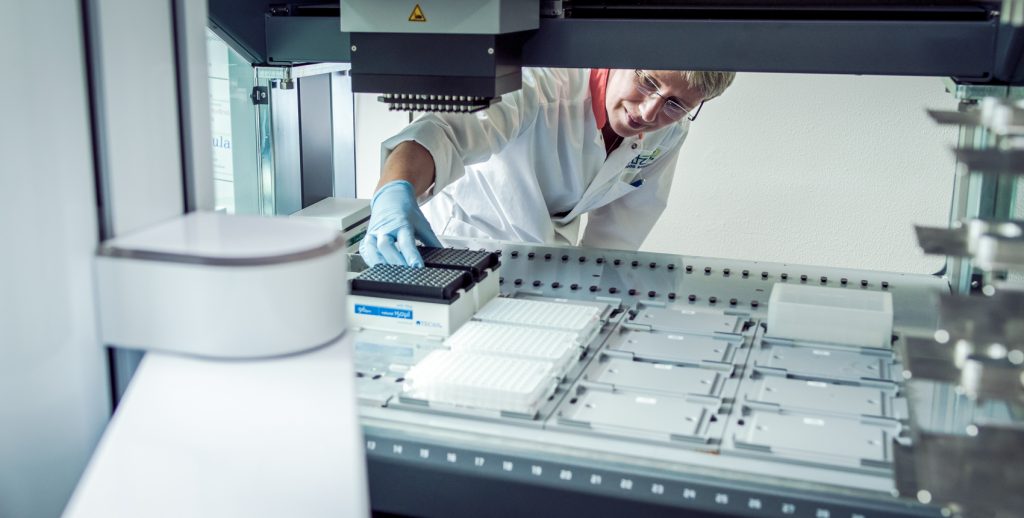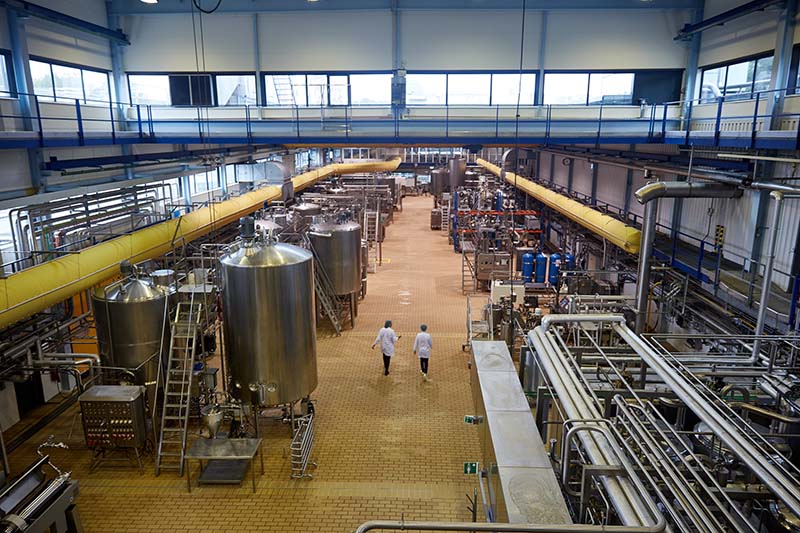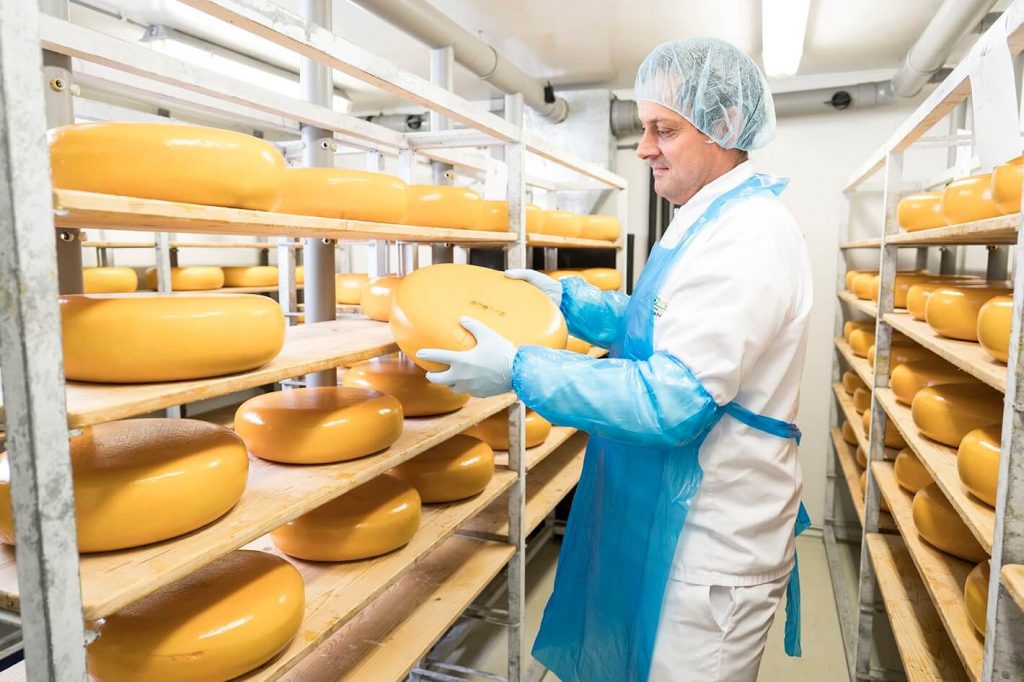With over 75 years of experience in food fermentation, NIZO have been the partner of choice for 100s of companies to optimize their ingredients and products. We have extensive knowledge on microorganisms and their physiology. With our fermentation capacity ranging from microplate scale to thousands of litres, analytical capacities, bioinformatics and other relevant expertise, we are equipped to tackle any food fermentation challenge.
Our expertise in food fermentation allows us to help our customers select, screen and identify new functional strains for fermented dairy and non-dairy products, including plant-based alternatives. We can assist in the production of desired flavours, removal of off-flavours, and improved texture, ultimately increasing the shelf life and safety of food products or reducing production costs.
By optimizing the processing conditions, we can help you achieve significant cost reductions while maintaining the highest quality standards. Trust NIZO to be your partner of choice in food fermentation.
Dairy
NIZO has been at the forefront of food fermentation advancements for decades, particularly in improving dairy fermentations. Our contributions to the industry include:
- Starter cultures that allow for tailored flavour formation in cheese, yoghurt, and other dairy products
- Removal of bitter tasting peptides
- Improved textures of cream cheese and yoghurt
- Omics technologies that allow to further improve the yields and functional properties
- Reducing lag-times
- Optimizing and stabilizing flavour profiles

Though dairy fermentations continue to be a key area of expertise for us, we are now expanding our knowledge to other substrates, including plant-based alternatives.
Plant-based
The current leading approach to replace animal protein in food is through the use of plant proteins. This is an attractive option as many plant proteins are produced sustainably and at relatively low prices. Additionally, plant-based substrates often contain dietary fibres, making them a popular choice for health-conscious consumers. However, there are challenges associated with using plant proteins, which is where food fermentation comes in to improve aspects such as off-flavour removal, flavour production, texture, nutritional impact, food safety, and shelf-life extension.
At NIZO, we take a comprehensive approach to improving plant-based proteins through food fermentation. We can help you achieve products with the desired sensory attributes and functionalities, by combining our expertise in:
- Off-flavour removal
- Flavour production
- Texture
- Nutritional impact
- Food safety and shelf-life extension
Our team of experts also conducts nutritional and sensory analysis to ensure that your products meet the highest standards of quality and taste.

Biopurification of plant-based ingredients
As the demand for sustainable food production continues to grow, the use of plant-based proteins in dairy and meat alternatives is becoming increasingly popular. However, these proteins may lack the desired flavour and texturizing properties when compared to animal-derived proteins.
At NIZO, we are actively researching the use of microbes for the removal of unwanted molecules in alternative proteins. Our innovative process, called “Biopurification,” involves the application of lactic acid bacteria and yeasts to food ingredients to achieve desired flavour and texture properties, without the production of typical fermentation side products.
Our team of experts is constantly optimizing the incubation of various plant proteins with lactic acid bacteria and yeasts, followed by the characterization of volatiles (GC-MS), non-volatile antinutritional factors (LC-MS), and sensory aspects. Our knowledge of food fermentation is directly applicable in food applications and can help you achieve products with good quality and functionality.
Microbial genomics
At NIZO, we understand the crucial role that microorganisms play in improving the quality, functionality, and health aspects of food ingredients and products. That is why we offer complete solutions for bacterial genomics and metagenomics questions, providing you with valuable insights into the identity, safety, and functionality of cultures or microbiomes:
- Genome sequencing, genome interpretation & comparative genomics
- Microbiome profiling platform
- Shotgun Metagenomics analysis platform
- In silico functionality and safety assessment
- Gene/trait matching for the identification of genomic biomarkers associated with specific phenotypes

With our extensive experience in detailed functional characterization through genome analysis, we can help you identify the functionalities of lactic acid bacteria, Bacillus spp., and gut and skin commensal organisms. This includes identifying strain functionalities such as flavour formation, off-flavour removal, carbohydrate utilization, virulence factors, and antibiotic resistance.
Culture collection, screening, and functional microbes
At NIZO, we have a vast collection of more than 4000 food-grade microorganisms, which can be screened to identify strains with desired properties such as the formation of clean label ingredients that affect flavor and texture, antimicrobial compounds, and vitamins. Our culture collection serves as an excellent source for new production organisms. We employ a combination of genome-based predictions and high-throughput screening to identify strains with the desired functionalities. We work closely with our customers to select and license exclusive strains that meet their specific needs.
Micro-food models
NIZO offers high-throughput screening options to increase the likelihood of finding the best bacterial strain, formulation, or processing condition for specific applications. Our in-product screening platforms have been developed to mimic product conditions and allow for the screening of a large number of test conditions. For example, our MicroCheese production enables us to produce up to 600 MicroCheeses simultaneously. These micro-food models are designed and validated to reflect industrial-scale processes and are useful for:
- Selecting the most suitable microbe for a given substrate, which is particularly relevant for plant-based substrates
- Characterizing any culture collection for functional properties in a product environment
- Tailoring flavours in a product
- Identifying starters for product diversification

Process development
At NIZO, we understand that transitioning from small scale trials to full-scale production can be a daunting task. The conditions in the laboratory may differ significantly from those in the actual production environment, such as temperature and pressure distributions. That’s why we offer a range of tools to help ensure a successful scale-up trajectory. Our multi-scale equipment and modelling capabilities provide a comprehensive approach to experimental design and process dimensioning. For example, we use microplate scales of 100 ul to detect specific functionalities such as the production of a particular flavor molecule. We then optimize and scale up the process in bioreactors of varying sizes, including 0.5L, 2L, 30L, and 600L, to ensure seamless scaling from lab to production.

Pilot scale cheese manufacturing
NIZO’s pilot plant has the capacity to produce a variety of cheeses, including Dutch-type cheeses like Gouda and Edam, as well as Cheddar and Swiss-type cheeses. Our facility is equipped to perform treatments such as thermisation, standardization, bactofugation, and pasteurization prior to cheese making. Cheese sizes can range from 300 g to 10 kg, and we can produce both fresh and processed cheese. We offer various ripening conditions, including temperature, humidity, and time, and can apply liquid coating to the cheese during ripening. At the 300 g scale, we can also produce cheeses containing alternative ingredients, such as plant-based alternatives. Our team at NIZO has extensive analytical and sensory capabilities to ensure the highest quality of the cheeses produced.

Related cases
Related blogs
© NIZO 2025 | Sitemap - Privacy Statement - Cookie Statement - Terms & Conditions
Website by: Online Marketing Agency